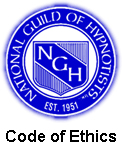
by Steve Roh
Hello, my name is Steve Roh, and I’m happy to offer this article, my first for the Banyan Hypnosis E-Zine. I’m operator of Center City Hypnosis in Philadelphia PA. I’m a relative newbie to the profession, especially when compared with some of the illustrious co-authors of this e-zine, but I’ve been able to rapidly build a successful full-time practice, and I hope I can share some useful information with you from that perspective.
In fact, I like to think of myself as the “Constant Newbie”… hopefully I will never get so complacent that I will be doing the same stuff the same way 10 or 20 years from now and pretending that makes me more “experienced”.
I believe that developing strong marketing skills is the best way to become a better hypnotist. After all, training and certifications are nice, but good marketing leads to more clients which leads to more experience and confidence.
And since ethical marketing is based on the ability to deliver a product or service that people want and place value upon, then anyone who proudly proclaims their weakness at marketing is really saying that they lack the ability to add value to people’s lives. That is nothing to be proud of!
So my area of focus will be about marketing in the context of developing a sustainable and growing practice, but my goal is to go beyond the usual tips like “give free talks” or “hand out flyers”. My topic aims to help hypnosis professionals by briefly summarizing books from sources outside of the field, and pointing out how they can be used within the field.
The first book is Robert Cialdini’s “Influence: Science and Practice”, recently released in its fifth edition. This is a landmark book about how people can be influenced using six “weapons of influence”:
-
Reciprocation – Repayment of obligations is deeply ingrained into human societies. Use this to your advantage: always provide your clients something unexpected for free. Just like any part of life, if you just give the bare minimum to match what you’ve promised, you’ll get minimal success. Clients do not leave my office without some unexpected “goodie”, whether it’s a stress control card, a book, or CD — all with promotional info included of course. See, people do not like to be nickel-and-dimed, especially if they are already spending several hundred dollars for your services. So don’t hesitate to invest in a few bucks of promotional good-will, especially if the return brings you enthusiastic testimonials and referrals!
-
Commitment and Consistency – Humans, if led into making a public and explicit commitment, have a strong motivation to meet that commitment in order to appear consistent. How can you use this fact? Many hypnotists run into difficulties with no-shows. Sometimes this can’t be helped, of course. Assuming that the hypnotist is not doing a generally poor job of salesmanship, no-shows could be made less frequent simply by using a change of language. Cialdini notes a study where potential clients, while setting up an appointment, were asked “Will you call to cancel if you need to?” instead of being told “Please call to cancel if you need to.” That simple question: “Will you?” and the response it invariably led to (“Yes”) resulted in fewer unexpected no-shows, because the responder had been gently forced into a commitment.
This principle can also be used to simultaneously increase referrals, and also increase client’s chance of lasting success. Don Mottin mentions subtly suggesting to smoking cessation clients that they are an “inspiration to men and women”, which can lead them to talking about your wonderful service to co-workers, friends and family. The thing is, once a non-smoking client has told everyone in their social circle about how they’ve quit smoking, this public commitment also benefits them because now it causes pressure to maintain their healthy choice of being smoke-free.
PS. I notice a form of negative consistency (aka inconsistency) in how some hypnosis practitioners approach their professional appearance. Some hypnotists will dress “professionally” upon first meeting a client, in order to increase confidence. Then, upon further sessions, the hypnotist starts dressing more casually in a way that they find more comfortable.
Think about that from the perspective of the client. When first meeting the hypnotist: “Great, this person looks professional and is dressed nicely. She seems to respect that I’m here to get help with something very important to me.” Then, later when the hypnotist has started wearing sweatpants and sneakers: “Hmmpf, I guess since she got me as a client now, she figures that she can slack off and be a lot more casual. My problem isn’t casual to me!”
-
Social Proof– People are more likely to do something if other folks seem to be doing it too. Obviously, testimonials are crucial! It is mind-boggling that so many hypnotists seem to be scared of asking for and using testimonials.
Also, people are more likely to do things if people similar to them are seen to be doing those things. Therefore, if you use photographic testimonials on your website, make an effort to include a variety of ethnic, gender and age groups.
-
Authority – People are more likely to obey authority figures even if those figures simply have the appearance of authority (titles or uniforms). Unfortunately in the hypnosis field it appears that many individuals seek to give themselves grand titles or meaningless degrees out of insecurity. Warning for users of these titles and degrees: in the age of Google it is very easy for people to find out how meaningless those things are (all it takes is one Google ad proclaiming “Get Your Clinical Hypnosis Degree for $99!” next to their search results). This will have the exact opposite effect of making you appear as an uneducated rube who bought a diploma out of ignorance, or worse.
-
Liking – People are more easily influenced by people that they like! There are of course some things like physical attractiveness which form a baseline for each of us, but certainly we can all increase our charisma with some focused effort. There is a very simple key to getting someone else to like you: purposefully find something, anything, that you can genuinely like about the client, even if their personality as a whole is a turn-off to your tastes.
-
Scarcity – People want what is perceived to be scarce and in limited supply. That which is freely given has no value (except love and that kind of thing, of course). This is fundamentally why it is crucial to avoid appearing as the desperate practitioner who is willing to work with anyone who comes along, even if they have no money or motivation. Desperation smells bad and is repellant to people who are looking for a competent, trusted resource.
Well, I hope these perspectives are of use to you in your practice. Some of the opinions may be harsh, but I’m sure you can handle it.
If you haven’t already, I urge you to get and read Cialdini’s books. My summary barely touches the surface of his work, which can be of immense value both in working with clients and also working on your business.
PS. Bonus tip – Cialdini has an audio book available on iTunes called “Executive Briefing: the Power of Persuasion”. This book contained a tip which helped me to realize and correct a mistake I was making with almost every client.
Previously, when grateful clients would tell me “Thank you” after working with them, I would automatically respond with a self-deprecating “Oh, no… it was no big deal.” Duh!!! How stupid of me to instantly devalue the work that was done! Especially since this would often happen at the end of a session, when they were still suggestible.
I’m sure many of us have had situations where clients have been helped to such an extent that they actually forgot that their pain and suffering was ever a problem for them (“Oh, that problem I came to get help with? That was nothing…”).
Now, when a client expresses their gratitude, I respond with the more productive “You’re welcome. I know how important our work is to you.” Isn’t that much more positive and rewarding?
© 2008 Steve Roh






